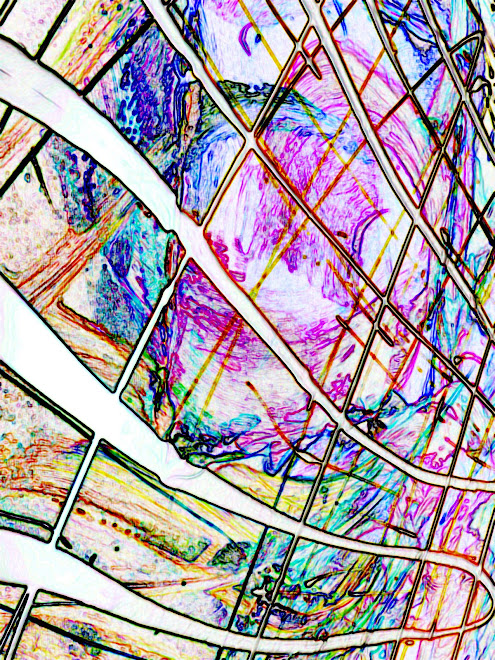I’d like to kick this off with a somewhat dated quote from Morgan Scott Peck:
We know the rules of community; we know the healing effect of community in terms of individual lives. If we could somehow find a way across the bridge of our knowledge, would not these same rules have a healing effect upon our world? We human beings have often been referred to as social animals. But we are not yet community creatures. We are impelled to relate with each other for our survival. But we do not yet relate with the inclusivity, realism, self-awareness, vulnerability, commitment, openness, freedom, equality, and love of genuine community. It is clearly no longer enough to be simply social animals, babbling together at cocktail parties and brawling with each other in business and over boundaries. It is our task – our essential, central, crucial task – to transform ourselves from mere social creatures into community creatures. It is the only way that human evolution will be able to proceed.
With the exception of the issues arising from the global digital divide (which I will not deal with here) the internet is fundamentally neutral, impartial, and non-discriminatory [Reid 1999; Hartley 2005; Flew 2005; Bruns 2008]. In an online environment you can communicate across boundaries irrespective of nationality, culture, gender, income, and any other demographically defining feature that would otherwise restrict you in the 'real' world [Flew 2005; Bruns 2008; Cobcroft 2008]. Logically these conditions should be conducive to moving humanity forward [Schuler 1996; Kollock and Smith 1999; Rheingold 2000], reflecting what Peck [1987] describes as a genuine, or true, community. Yet spending too much time on the internet (regardless of what you might be doing online) is still commonly perceived as unproductive and unhealthy [Wellman and Gulia 1999]. It is unfortunate that investing time and attention in these online communities is exactly what makes the majority of them prosper.
Rheingold defines online communities as “social aggregations that emerge from the Internet when enough people carry on public discussions long enough, with sufficient human feeling, to form webs of personal relationships” [2000, 5]. I see this as only the first brick in a much bigger building. Like offline communities they emerge from the coming together of people who share similar interests/values/goals etc. [Flew 2005; Cobcroft 2008; Bruns 2008]. However, online communities differ in that they come from a context that transcends physical limitations and circumvents traditional social hierarchies [Cobcroft 2008; Bruns 2008]. Online communities are defined by their users, where expression is through participation and your value is defined by the contributions you make [Hartley 2005; Bruns 2008]. Over time these communities are shaped by their members; expanding, contracting, and evolving accordingly, increasing in complexity and adapting to change in ways that are not foreseeably possible by offline communities.
There are two broad identifiable arguments tarnishing the reputation of online communities. The first stems from the fear that we will see a rise in hate groups and negative communities [Flew 2005; Bruns 2008]. I understand that the internet provides a medium for the development of socially destructive communities, such as pro-ana groups, homophobic groups, racist groups – the list goes on – but like it or not, these communities existed offline long before they went live on the internet. While it is true that existence online may have accelerated the contact and communication between these negative communities [Bruns 2008], why should these bad apples ruin the reputation of all the 'healthy' online communities? The second entails the concern that the increase in online communities, and the pervasiveness of the internet in our lives, is leading to a wider social disconnect, that threatens societal stability [Bruns 2008]. While I think this argument has some merit, particularly in that no online activity can ever replace our physical senses, it seems to echo the voices of those who are resistant to change. There is always a risk with change. Fear of this risk should only hold us back when the risk outweighs the possible benefits. I think these fears are unfounded and are holding back the real potential of online communities.
I believe that there has been too much focus on how people are connected, and we have lost touch with why people are connected. If the main difference between online and offline communities is the forum in which they choose to communicate [Flew 2005; Bruns 2008; Cobcroft 2008], does it really matter what this forum is as long as the purpose of communication is being achieved? If interactive communication is pivotal to social growth and communal enrichment [Peck 1987; Reid 1999; Kollock and Smith 1999], it stands to reason that as long as we are connected, and communicating in a positive and effective manner, how we are connected is irrelevant.
We may be a long way from attaining Peck’s [1987] "genuine community" status, but on the path to this nirvana shouldn’t we nurture what is good about the communities we do have? Online communities in virtual space deserve our respect and acceptance just as much as offline communities in the 'real' world. I remain hopeful that those of us immersed in life online will (eventually) be able to shake off the negativity that shrouds virtual communities and paints them as lesser than real. Only then will they be able compliment and coexist peacefully with the offline world.
Please note:
Online communities are also called virtual communities. These terms are commonly used interchangeably and construe the same meaning.
See also the following posts:
Why we fear the influence of electronic games (parts one and two) – for an extended case-study on gaming, media effects, and our fear of technology.
A revelation of the “real” value in YouTube – for further understanding of the value and importance of online communities, specifically the YouTube community.
REFERENCES
Cobcroft, R. 2008. KCB201 Virtual Cultures: Week Six Lecture. Public Lecture,
Flew, T. 2005. Virtual Cultures. In New Media: An Introduction, by T. Flew, 61-82.
Hartley, J. 2005. Communication, Cultural and Media Studies: The Key Concepts. 3rd ed.
Kollock, P. and M. A. Smith. 1999. Introduction: Communities in Cyberspace. In Communities in Cyberspace, ed. M. A. Smith and P. Kollock, 3-26.
Peck, M. S. 1987. The Different Drum: Community Making and Peace. 2nd ed.
Pesce, M. 2007. The Human Network: Mob Rules. http://blog.futurestreetconsulting.com/?p=27 (accessed March 3, 2008).
Reid, E. 1999. Hierarchy and Power: Social Control in Cyberspace. In Communities in Cyberspace, ed. M. A. Smith and P. Kollock, 107-133.
Rheingold, H. 2000. The Virtual Community: Homesteading on the Electronic Frontier.
Schuler, D. 1996. New Community Networks: Wired For Change. Massachusetts: Addison-Wesley.
Wellman, B. and M. Gulia. 1999. Virtual Communities as Communities: Net Surfers don’t Ride Alone. In Communities in Cyberspace, ed. M. A. Smith and P. Kollock, 167-194.




No comments:
Post a Comment